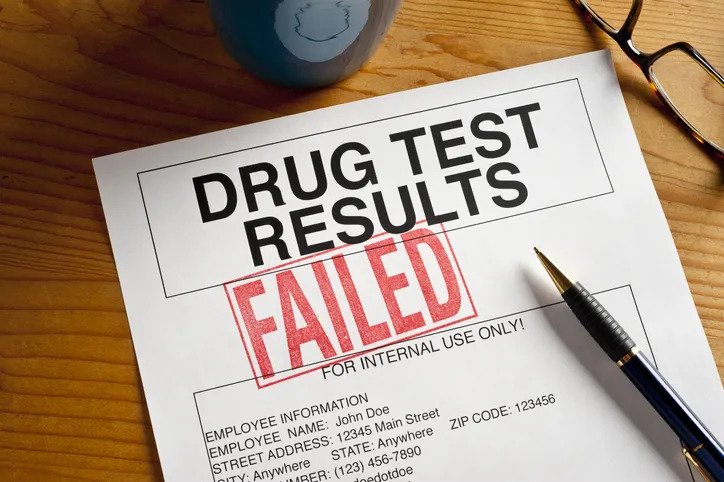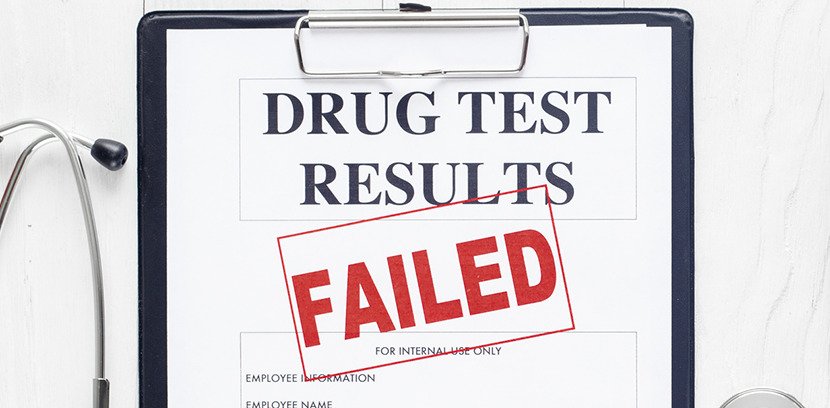Imagine anxiously sitting in a room awaiting the results of a drug test that could change your life. The question lingers with uncertainty: Can You Go To Jail For Failing A Drug Test?
In a world where personal choices and legal consequences intersect, unraveling the complex web of laws and regulations surrounding drug testing is crucial.
This article will explore the surprising consequences that may await those who stumble down this precarious path.
Buckle up because the answer might not be as straightforward as you think.
Can You Go To Jail For Failing A Drug Test? – Know Your Circumstance

The consequences of failing a drug test vary widely depending on the context and jurisdiction.
In most employment situations, failing a drug test will unlikely result in jail time.
However, you must be aware of the specific requirements and potential legal consequences of drug testing in your situation.
Suppose you are facing a drug test and have concerns about the potential outcomes.
Also see: Does Ulta Drug Test?
In that case, it is advisable to consult with a legal professional who can provide guidance based on your specific circumstances.
Understanding the laws and regulations related to drug testing in your jurisdiction is crucial to navigating this complex issue effectively.
It is important you know your circumstances.
4 Types of Drug Tests: Consequences of Failing

1. Employment-Related Drug Tests
In the context of employment, failing a drug test typically does not result in jail time.
Instead, it can lead to consequences such as job loss or the withdrawal of a job offer.
Most employers use drug tests to maintain a safe and drug-free workplace, and their primary goal is to assess an individual’s fitness for a particular job.
However, some safety-sensitive positions, such as those in law enforcement or transportation, may have stricter regulations, and failing a drug test could lead to more severe consequences, including the possibility of losing a professional license.
2. Probation and Parole
Individuals on probation or parole often have specific conditions they must adhere to, which may include regular drug testing.
Failing a drug test while on probation or parole can have serious repercussions, including the potential for jail time.
The severity of the consequences depends on various factors, such as the nature of the offense, the individual’s criminal history, and the discretion of the probation or parole officer.
3. Court-Mandated Drug Tests
In some legal cases, individuals may be required to undergo drug testing as part of a court order.
This can occur in cases related to drug offenses, child custody disputes, or other legal matters.
Failing a court-mandated drug test can lead to contempt of court charges, fines, or, in some instances, jail time.
4. Child Custody and Family Law Cases
Child custody battles can involve drug testing, especially when one parent alleges substance abuse by the other.
Failing a drug test in such cases can impact custody arrangements and visitation rights.
While it may not lead directly to jail time, it can have significant legal consequences in the family law context.
5. Drug Offenses
In cases involving drug offenses, such as possession or distribution, failing a drug test can be used as evidence against the individual.
Depending on the specific charges and the jurisdiction, failing a drug test may lead to additional charges or penalties, including the possibility of incarceration.
How Do You Get Out of a Failed Drug Test?

Failing a drug test can be a harrowing experience, casting a shadow of uncertainty and potential consequences over your life.
Whether it was due to a momentary lapse in judgment or an unexpected exposure, the looming question is, “How do you get out of a failed drug test?”
While there’s no one-size-fits-all solution, this will guide you through the complex terrain of drug testing, offering insights, strategies, and tips to help you navigate this challenging situation.
1. Know Your Rights
If you face a failed drug test, you must be aware of your rights.
Employers and organizations typically have policies and procedures for handling positive drug tests.
However, knowing your rights under local, state, and federal laws can be a valuable resource.
Consult with an attorney or legal expert to understand the legal implications and potential recourse available to you.
2. Verify the Test Results
Mistakes can happen in the drug testing process.
False positives, contaminated samples, or administrative errors may lead to erroneous results.
If you suspect your failed drug test is inaccurate, requesting a retest is crucial.
Be sure to follow the appropriate procedures outlined by your employer or the testing facility to ensure transparency and fairness in retesting.
3. Address Prescription Medications
If you’re taking prescription medications that may trigger a positive drug test result, inform your employer or the testing facility in advance.
Provide documented proof of your prescription and medical necessity.
Many employers have policies in place to accommodate employees taking prescribed medications.
4. Seek Legal Counsel
If you believe your failed drug test is unjust or face severe consequences such as job loss or legal actions, consulting with an attorney specializing in employment or drug testing law is advisable.
They can provide guidance on the best course of action, including potential legal remedies.
5. Rehabilitative Options
In some cases, employers may offer employees who fail drug tests the opportunity to participate in rehabilitation or counseling programs as an alternative to termination.
Accepting such an offer, if available, may help you keep your job and address any underlying substance abuse issues.
Also see: Does Hobby Lobby Drug Test?
6. Learn from the Experience
Regardless of the outcome, a failed drug test can be a wake-up call.
Use the experience as an opportunity for self-reflection and personal growth.
If substance abuse is a concern, seek support and resources to address any underlying issues and work towards a healthier lifestyle.
Conclusion
Whether you can go to jail for failing a drug test is complex, with answers that vary depending on your specific circumstances and the jurisdiction you find yourself in.
While failing a drug test typically won’t land you behind bars, it can set a chain of events that may lead to legal consequences.
So, before you breathe a sigh of relief or resign yourself to despair, it’s crucial to understand the intricacies of your situation.
Seek legal counsel where necessary, and take proactive steps to address any underlying issues.
Good luck!

